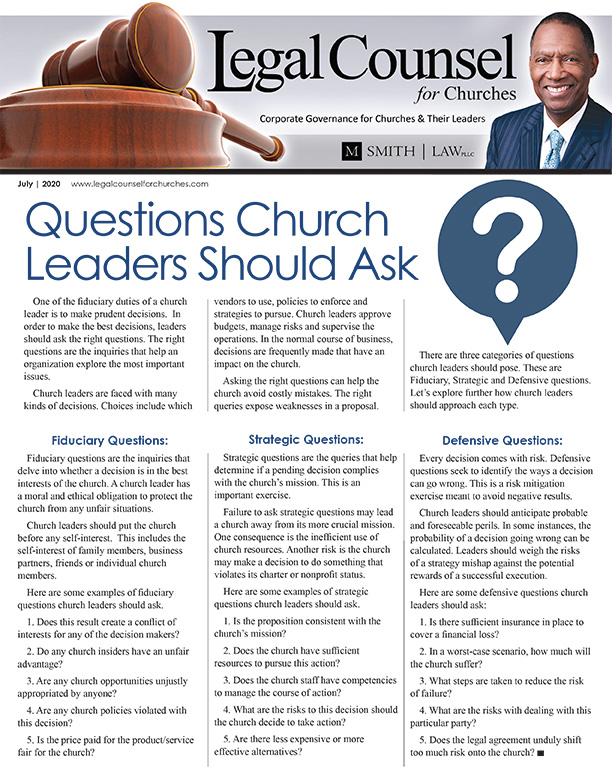Over the years, I have had the opportunity to work with several company boards. The boards of successful organizations have a few traits in common.
High performing organizations are usually governed by high performing boards. This is because the directors are responsible for setting the tone, direction and strategy for the enterprise. This is also the case for churches.
A high performing church board understand its fiduciary duties. Church leaders often realize they are an integral part of the ministry’s success. In order for the church to fulfill its mission, the governing body must seek its own excellence.
Here are a few habits I have observed in boards that perform at a high level.
1) Self-Awareness
High performing boards want to know how they are doing. These directors know that periodic feedback is an effective way to explore improvements, spot inefficiencies and ensure open dialog. One way boards take the pulse of their own performance is through self-evaluations.
2) Strategic Vision
One role of a board is to look ahead for challenges and prospects. Church leaders who think strategically about the ministry often create a high performance culture for their ministry. It is up to the church leadership
to define its objectives and measure its achievements. Church strategy includes an honest survey of strengths, weaknesses, opportunities and threats. However the church strategy is phrased, the board’s focus on what’s important can help assure success.
3) Education and Training
Church directors should constantly seek to expand their knowledge about governance to attain high performance. The law on corporate governance continually evolves. When the rules shift, so does the responsibilities of church leaders. Church boards who participate in education and training make the church better.
4) Succession Planning
Service on a church board does not last forever. Turnover happens on all boards. A high performing church board knows the importance of grooming successors. In order to ensure a smooth transition, procedures should be written for identifying and onboarding potential candidates. Such planning may include an inventory of the skills and particular talents needed to help the church make prudent decisions.
5) Risk Management
Directors of a high performing church board help the organization steer clear of risks. The directors should write policies that address crucial areas of concern. When followed, these policies keep the church on a safe path. High performing boards regularly review policies to ensure the provisions remain relevant and valid for today’s risks.
6) Shared Values
Church boards should share the values of the ministry. This perspective keeps a consistent vision before the board. Shared values reduce friction and misunderstandings.
7) Policy Focus
High performing directors do not micromanage the organization. When the directors focus on minor tactical matters, they take their focus off strategic matters. This is often the role of management and staff. High performing boards know they should place their attention on the big picture.

